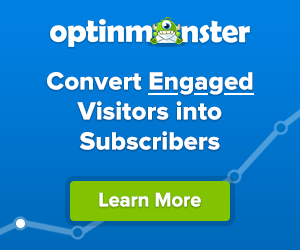When should you start on Google, Facebook Ads, organic posting and all the rest for your holiday marketing? Now? Later?
Christmas is always just around the corner (as with the other holidays!) and recently, I was asked a few questions regarding holiday marketing.

Here are a couple of quick questions and answers around Holiday marketing. If you have any questions or ideas/tips/experiences of your own, share them with us in our Facebook group – Facebook Ads Made Easy.
How soon is too soon, or how late is too late?
It’s important to start holiday marketing well in advance. While the customer is not always “on” to buy for the holiday season, they do want it to be easy to find and buy what they need and want when the time comes. You also want to ensure when you are putting money and time into your holiday marketing, that you are serving it to the most likely to buy audience, rather than initiating customer discovery at a time when sales are so likely. Beginning holiday marketing 2-3 months in advance is ideal, as the buying process for most begins much earlier than when the purchase is made. You should spend time showing your potential customers why they should buy with you well before they are actually ready to buy and nurture them through the sales process.
Facebook Ads and Google ads for business are a fabulous way to start generating that traffic or garnering the interest in advance of when you think the sale is likely to actually take place. Take time to understand who is visiting your website (Google Analytics is helpful here) and get familiar with the Facebook pixel, your clicks and where they are coming from.
When should planning start?
You should have 3-6 months of your marketing plans mapped out in advance. Some consultants may tell you a year or more, and while this may work for some, it doesn’t always allow for the business to roll with ever-evolving platform changes and shopping trends. If you have a rough map of when you will begin, with what style of content and which distribution methods (print, television, social media organic and paid) you will not only find that your marketing flows with ease, but also that customers will ebb and flow with your direction, too. It’s great to create hype around a new/relevant product a month or two before you really expect sales to ramp up. Through search engines and social media advertising, you can later target the people who respond to that hype in your advertising efforts, meaning you’re delivering the sales message to those who are most likely to respond by purchasing, as they are a high quality and motivated audience.
Can seasonal marketing hurt you if you come at it too soon?
This would really depend on how you go about it and who you are marketing to. For example, if you start to advertise holiday specials or products to parents mid-year, they might be likely to explore your website as they are open to ideas for the holidays. If you are advertising to single adults or young adults, they may be less likely to respond so soon, but more likely to spend a longer amount of time deciding what to buy from where. You need to have a good handle on who your customer is, either overall within your business or specifically drilling down to customers for different products, to determine the psychographics of their consumer style.
Inject the emotional side of your business into your marketing
General tips for great holiday marketing
Make advertising for the holiday fun! People are buying for loved ones because it makes them happy to gift something to someone they care about. Stay away from gimmicky, cheesy tactics and stay on-brand. Work on showing why what you have to offer for the holiday season is worth their money, and inject the emotional side into the marketing as well.
Consider how the gift will make someone feel when they receive it, what makes it unique/attractive to the person who will be receiving it and always be sure to demonstrate how they can purchase it. Social proof is crucial, too. If possible, use reviews, testimonials (written, image, video) and show the potential customer how the purchase has made others feel. At the end of the day, you can tell people how great your products are all you want, but if someone else tells them as well, this is word of mouth at its finest.
It’s also important to recognise the difference between the platforms you might be using to run your Christmas or New Year marketing – specifically for PPC or paid ad campaigns on Google and Facebook (and the Facebook-owned platforms such as messenger and Instagram). Think about this: People go to Google and literally search what they are looking for. Here you will find more motivated buyers because they are jumping on the platform in order to shop. With Facebook and Instagram, we have people jumping on to consume the news/feeds that are presented to them. So here we have people who are just looking to have a bit of a scroll and be entertained. On Google, you can be more direct and to the point; “Buy My Stuff” so to speak. On Facebook, it is advisable to start with education based marketing first, addressing the how and why and attracting your market to beautiful content that explains you well – “indulge yourself by looking at what we offer‘, so to speak – before raming up retargeting to come back to them and show them what you sell is worth purchasing. Different platforms and different audiences will require unique approaches.
And finally…
Don’t put all of your eggs in one basket. Some customers like to touch and feel – do you need to hold a stall somewhere? Some like to take their time – have you warmed them up to your business and product ranges in advance of asking them to purchase? Some people like to make quick, simple choices and want it to be a simple process – they do not want to spend time shopping. Have you considered how easy it complex it is to buy? When thinking of social media – remember you do not own the audience you have. Build your mailing lists through the year and if you have a physical store, give them reasons to visit with you and experience your customer service. It is reasonable to say that most people have a reason to make multiple purchases at the holiday season – but crucial to remember that even so, they are far more likely to purchase from someone/a company that they like. Lastly, first impressions count. If a customer comes into your store or reaches your website and the purchase sequence is difficult, how likely are they to try again?
Before initiating holiday marketing – or any marketing – ensure your processes, customer services and systems are in check. Most of the time, we only get one chance. First impressions count!
This stuff doesn’t come to everyone naturally. That’s what we’re here for! For Google Ads and Facebook ads strategies that work, contact our team today.





















